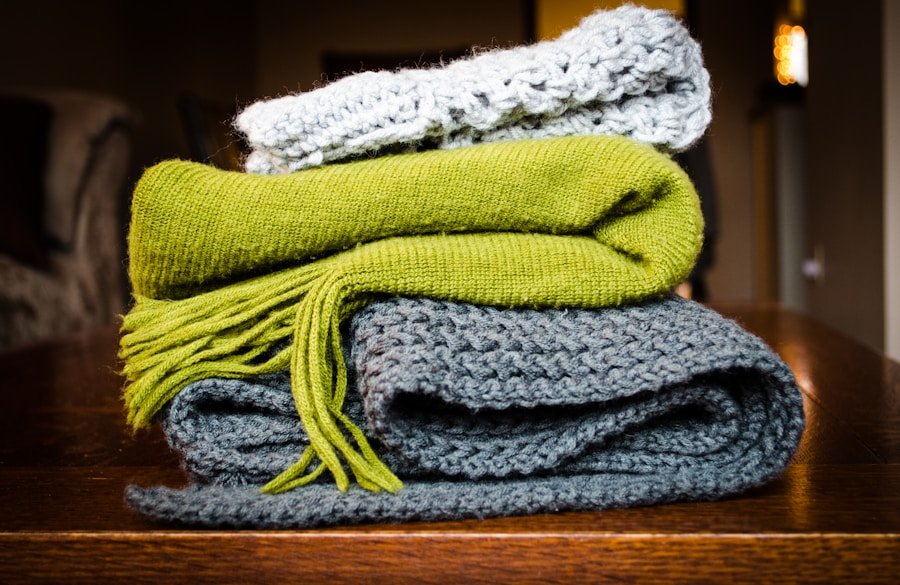Engaging in outdoor activities, such as campfire cooking, offers a unique and immersive experience, combining the sights, sounds, and aromas of nature. The crackling flames, wood smoke, and savory scents of cooking over an open fire all contribute to the allure of being in the great outdoors. However, as outdoor enthusiasts, it is essential to acknowledge the environmental implications of our actions.
In recent years, the concept of zero waste camping has gained momentum, focusing on minimizing waste generation during outdoor activities. This article will provide practical, eco-friendly tips for zero waste campfire cooking, enabling individuals to savor delicious meals in nature while reducing their environmental impact.
Key Takeaways
- Use reusable and biodegradable dinnerware and utensils to minimize waste while cooking and dining outdoors.
- Plan your meals and portion sizes carefully to avoid food waste and pack any leftovers in reusable containers.
- Choose locally sourced and organic ingredients to reduce the environmental impact of your campfire cooking.
- Practice Leave No Trace principles by properly disposing of food scraps and packaging, and cleaning up your campsite thoroughly.
- Enjoy the experience of mindful eating by savoring your zero waste campfire cooking and appreciating the natural surroundings.
Sustainable Campfire Cooking: How to Minimize Waste in the Great Outdoors
When it comes to sustainable campfire cooking, one of the most important things to consider is the type of cookware and utensils you use. Instead of disposable plates, cups, and cutlery, opt for reusable or biodegradable options. There are many lightweight and durable camping cookware sets available that are designed for outdoor use and can be used again and again.
Additionally, consider using cloth napkins instead of paper ones, and bring along a small wash basin and biodegradable soap for washing dishes. By minimizing the amount of single-use items you bring with you, you can significantly reduce the amount of waste generated during your camping trip. Another important aspect of sustainable campfire cooking is the food itself.
When planning your meals for a camping trip, try to choose ingredients that have minimal packaging and can be easily stored in reusable containers. For example, instead of buying pre-packaged snacks and meals, opt for whole fruits and vegetables that can be stored in reusable produce bags or containers. Additionally, consider making your own trail mix or granola bars at home and storing them in reusable containers to bring with you on your trip.
By being mindful of the packaging and waste associated with the food you bring, you can significantly reduce the amount of trash generated during your camping trip.
Zero Waste Campfire Cooking: Eco-Friendly Tips for Outdoor Dining
In addition to choosing sustainable cookware and minimizing packaging waste, there are several other eco-friendly tips for zero waste campfire cooking that outdoor enthusiasts can incorporate into their camping trips. One such tip is to plan your meals carefully to minimize food waste. Before heading out on your camping trip, take some time to plan out your meals and make a detailed shopping list.
By only purchasing the ingredients you need for your meals, you can avoid overbuying and ending up with excess food that may go to waste. Additionally, consider bringing along a cooler or insulated bag to store perishable items such as meat and dairy products, which can help prevent them from spoiling and being thrown away. Another eco-friendly tip for zero waste campfire cooking is to practice mindful eating.
This means being conscious of how much food you’re preparing and consuming, and avoiding overeating or preparing more food than you need. When cooking over a campfire, it’s easy to get carried away and cook large quantities of food, but by being mindful of portion sizes and only cooking what you know will be eaten, you can minimize food waste. Additionally, consider composting any food scraps or leftovers that cannot be consumed, rather than throwing them in the trash.
Many campsites have designated composting areas, or you can bring along a small compost bin to store food scraps until you can dispose of them properly.
Reduce, Reuse, Recycle: Eco-Friendly Practices for Campfire Cooking
| Zero Waste Campfire Cooking Tips | Eco-Friendly Outdoor Dining |
|---|---|
| Use reusable utensils and plates | Reduce single-use plastic waste |
| Choose locally sourced ingredients | Support local farmers and reduce carbon footprint |
| Opt for compostable food packaging | Minimize waste and encourage composting |
| Practice Leave No Trace principles | Leave the campsite as you found it |
The principles of reduce, reuse, and recycle are key to practicing zero waste campfire cooking. When it comes to reducing waste, one of the most effective strategies is to plan your meals carefully and only bring the ingredients and supplies you know you will use. By avoiding overbuying and bringing excess items that may go to waste, you can significantly reduce the amount of trash generated during your camping trip.
Additionally, consider reusing items whenever possible. For example, instead of using disposable aluminum foil or parchment paper for cooking over the campfire, invest in a set of reusable grilling mats or silicone baking mats that can be used multiple times. Not only will this reduce the amount of waste generated, but it will also save you money in the long run.
In terms of recycling, it’s important to be mindful of the items you bring with you on your camping trip and how they can be disposed of properly. Many campsites have recycling facilities for items such as glass, plastic, and aluminum, so be sure to separate your recyclables from your trash and dispose of them in the appropriate bins. Additionally, consider bringing along a small bag or container to collect any recyclables that may not have designated bins at the campsite, so you can take them with you and recycle them when you return home.
By incorporating these principles of reduce, reuse, and recycle into your campfire cooking practices, you can minimize your environmental impact and enjoy a more sustainable outdoor dining experience.
Mindful Eating: How to Enjoy Zero Waste Campfire Cooking
Mindful eating is an important aspect of zero waste campfire cooking, as it encourages us to be conscious of our food choices and consumption habits. When cooking over a campfire, it’s easy to get caught up in the excitement of preparing and enjoying delicious meals in nature, but it’s important to be mindful of how much food we’re preparing and consuming. One way to practice mindful eating while camping is to focus on simple, whole foods that require minimal preparation and packaging.
For example, instead of bringing along pre-packaged snacks and meals that may generate a lot of waste, opt for fresh fruits and vegetables that can be enjoyed as they are or easily prepared over the campfire. Another aspect of mindful eating is being conscious of portion sizes and avoiding overeating. When cooking over a campfire, it’s tempting to cook large quantities of food, but by being mindful of portion sizes and only preparing what you know will be eaten, you can minimize food waste.
Additionally, consider incorporating sustainable eating practices into your camping trip, such as choosing locally sourced and organic ingredients when possible. By being mindful of our food choices and consumption habits while camping, we can enjoy delicious meals in nature while minimizing our environmental impact.
Eco-Friendly Outdoor Dining: Tips for Zero Waste Campfire Cooking
In addition to practicing mindful eating, there are several other eco-friendly tips for zero waste campfire cooking that outdoor enthusiasts can incorporate into their camping trips. One such tip is to invest in high-quality, durable cookware and utensils that are designed for outdoor use. Instead of disposable plates, cups, and cutlery, opt for reusable options made from materials such as stainless steel or bamboo.
Additionally, consider bringing along a small wash basin and biodegradable soap for washing dishes, so you can avoid using disposable items and minimize your environmental impact. Another eco-friendly tip for zero waste campfire cooking is to choose recipes that require minimal preparation and packaging. For example, instead of bringing along pre-packaged meals and snacks that may generate a lot of waste, opt for simple recipes that use whole ingredients and can be easily prepared over the campfire.
Additionally, consider incorporating sustainable eating practices into your camping trip by choosing locally sourced and organic ingredients when possible. By being mindful of our food choices and consumption habits while camping, we can enjoy delicious meals in nature while minimizing our environmental impact.
Zero Waste Camping: Sustainable Practices for Cooking Over a Campfire
Zero waste camping is all about minimizing our environmental impact while enjoying the great outdoors, and this includes practicing sustainable cooking practices over a campfire. One important aspect of zero waste camping is choosing cookware and utensils that are designed for outdoor use and made from sustainable materials. Instead of disposable plates, cups, and cutlery, opt for reusable options made from materials such as stainless steel or bamboo.
Additionally, consider investing in high-quality cookware sets that are durable and designed for outdoor use, so you can avoid using disposable items that may end up in the trash. Another sustainable practice for cooking over a campfire is to choose recipes that require minimal preparation and packaging. For example, instead of bringing along pre-packaged meals and snacks that may generate a lot of waste, opt for simple recipes that use whole ingredients and can be easily prepared over the campfire.
Additionally, consider incorporating sustainable eating practices into your camping trip by choosing locally sourced and organic ingredients when possible. By being mindful of our food choices and consumption habits while camping, we can enjoy delicious meals in nature while minimizing our environmental impact.
Leave No Trace: Eco-Friendly Campfire Cooking Tips for Outdoor Enthusiasts
When it comes to enjoying the great outdoors, it’s important to leave no trace and minimize our impact on the environment. This includes practicing eco-friendly campfire cooking tips that help us minimize waste while enjoying delicious meals in nature. One important aspect of leave no trace camping is choosing cookware and utensils that are designed for outdoor use and made from sustainable materials.
Instead of disposable plates, cups, and cutlery, opt for reusable options made from materials such as stainless steel or bamboo. Additionally, consider investing in high-quality cookware sets that are durable and designed for outdoor use, so you can avoid using disposable items that may end up in the trash. Another eco-friendly tip for leave no trace campfire cooking is to plan your meals carefully to minimize food waste.
Before heading out on your camping trip, take some time to plan out your meals and make a detailed shopping list. By only purchasing the ingredients you need for your meals, you can avoid overbuying and ending up with excess food that may go to waste. Additionally, consider bringing along a cooler or insulated bag to store perishable items such as meat and dairy products, which can help prevent them from spoiling and being thrown away.
By incorporating these eco-friendly tips into your campfire cooking practices, you can enjoy delicious meals in nature while leaving no trace on the environment. In conclusion, zero waste campfire cooking is all about enjoying delicious meals in nature while minimizing our environmental impact. By choosing sustainable cookware and utensils, planning meals carefully to minimize food waste, practicing mindful eating habits, and incorporating eco-friendly practices into our camping trips, we can enjoy a more sustainable outdoor dining experience.
Whether you’re an experienced outdoor enthusiast or new to camping, these eco-friendly tips for zero waste campfire cooking can help you minimize your environmental footprint while enjoying the great outdoors. So next time you head out on a camping trip, be sure to incorporate these tips into your campfire cooking practices and leave no trace on the environment while enjoying delicious meals in nature.
FAQs
What is zero waste campfire cooking?
Zero waste campfire cooking refers to the practice of preparing and cooking food outdoors while minimizing the generation of waste. This includes using reusable or biodegradable utensils, avoiding single-use plastic packaging, and properly disposing of any waste that is produced.
What are some tips for eco-friendly outdoor dining while camping?
Some tips for eco-friendly outdoor dining while camping include using reusable or biodegradable utensils and dinnerware, bringing along a compost bin for food scraps, choosing locally sourced and minimally packaged food items, and properly disposing of any waste generated.
How can I minimize waste when cooking over a campfire?
To minimize waste when cooking over a campfire, you can use reusable or biodegradable cooking utensils and containers, avoid single-use plastic packaging, and plan meals that produce minimal food waste. Additionally, you can properly dispose of any waste that is generated by following Leave No Trace principles.
What are some eco-friendly alternatives to traditional campfire cooking supplies?
Eco-friendly alternatives to traditional campfire cooking supplies include using stainless steel or bamboo utensils, reusable silicone food storage bags, and biodegradable plates and cups made from materials such as bamboo or palm leaves. Additionally, you can opt for natural fire starters instead of chemical-laden options.
How can I practice Leave No Trace principles while cooking outdoors?
To practice Leave No Trace principles while cooking outdoors, you can minimize the impact of your cooking activities by properly disposing of food scraps, packaging, and any other waste generated. This includes packing out all waste, using designated cooking areas, and following any specific regulations for the area in which you are camping.













